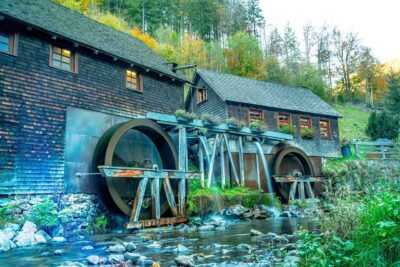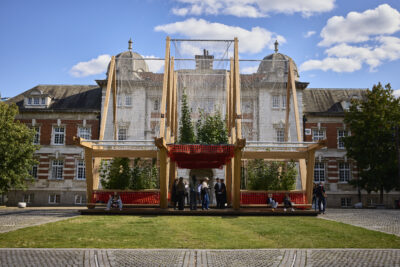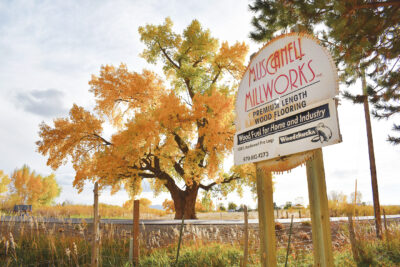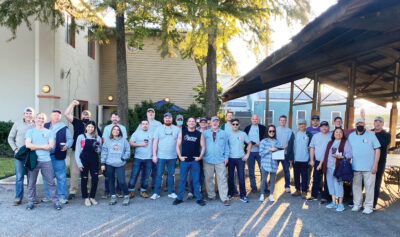Red Boiling Springs, TN – When producing 48 to 50 million board feet of Appalachian Hardwood lumber annually, achieving consistency with each load might seem impossible. However, Clark Lumber Company, located here, has earned a reputation for doing exactly that since it began in 1982.
Brandon Clark, the company’s vice president representing third-generation family ownership, explained it like this: “One of the things I always tell my first-time customers is ‘try a load…if you like it, send a repeat order because it is going to look just like it the next time. If you don’t like it, we probably just need to part ways and stay friends.’”
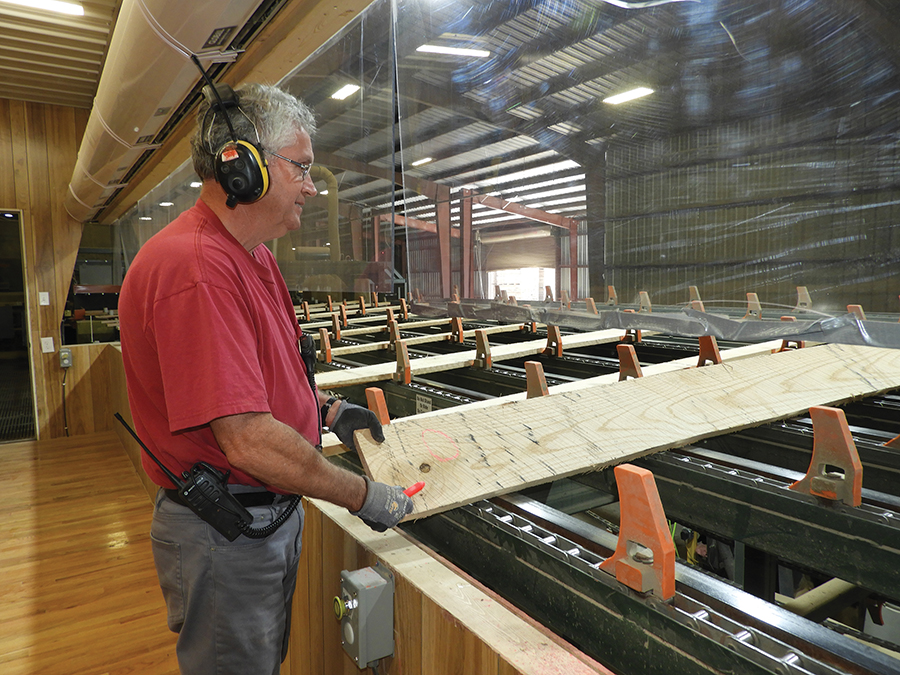
He also knows that today’s modern sawmills require state-of-the-art facilities to keep pace with current supply demands. To do that, Clark Lumber is investing significantly in capital projects. “Two new Hurdle head rigs will be online in August,” he continued, “as well as another Froedge trim saw for the stacker at Red Boiling Springs. At the Clark Hardwoods location, there is a new Cleereman carriage going in in August, and another Froedge trim saw there, as well.
He noted that much of the reasoning behind their capital improvements is to solve current labor challenges. “We have been trying to minimize the heavy labor,” he explained, “so we’ve got a couple of machines—one already running and two that are being installed right now to handle and stack all the cants and ties and anything that is heavier than grade lumber.”
Clark Lumber also utilizes Hurdle head rigs with Brewco resaws and Brewco edgers at all their mills. When putting lumber on sticks, they run a Froedge stacker and BolDesigns kilns, with dry lines and a bin sorter put together by Froedge. The Clark Hardwood mills include a McDonough Manufacturing band mill with a Cleeremen carriage, a Brewco resaw and a Crosby combination edger with a Winston machinery stacker.
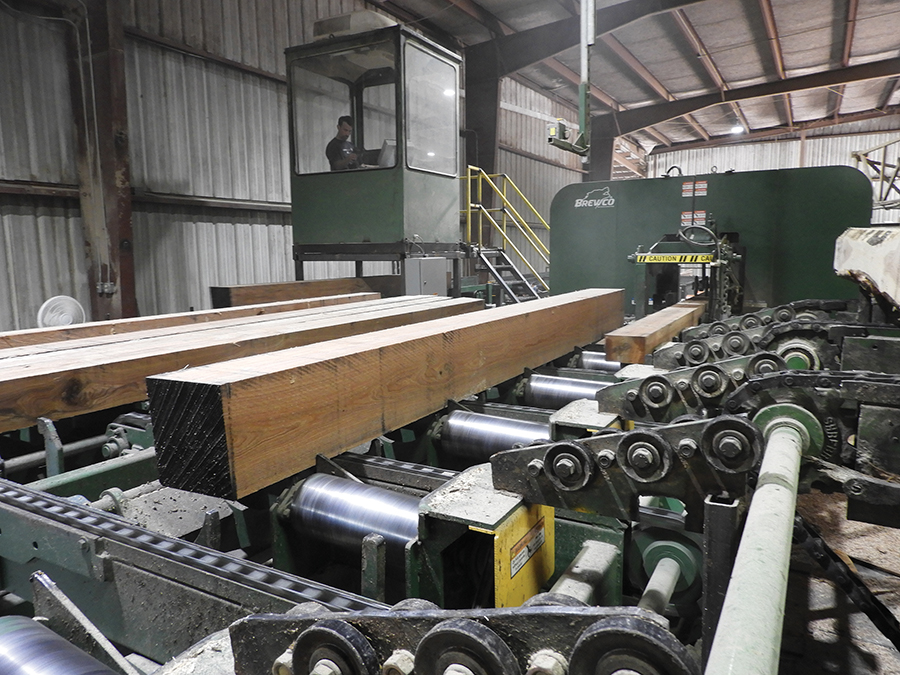
The company also operates a 382 Newman planer at one location and a 282 Newman planer at the other. “We can surface to whatever thickness the customer is looking for, whether it be standard thicknesses or metric,” Clark added. That means they can expedite lumber for their customers and are doing so, said Clark, with a drying capacity of about two million feet per month. They accomplish this goal—in part—by using American Wood Dryers kilns and a recently added dehumidification kiln from Nyle Dry Kilns.
To complement that drying volume, Clark Lumber recently added covered air-drying space. Clark stated, “We now have about five million feet of covered air drying to ensure minimal degrade during the air-drying process.” They also have a reman station on their dry lines for boards that need to be cleaned up.
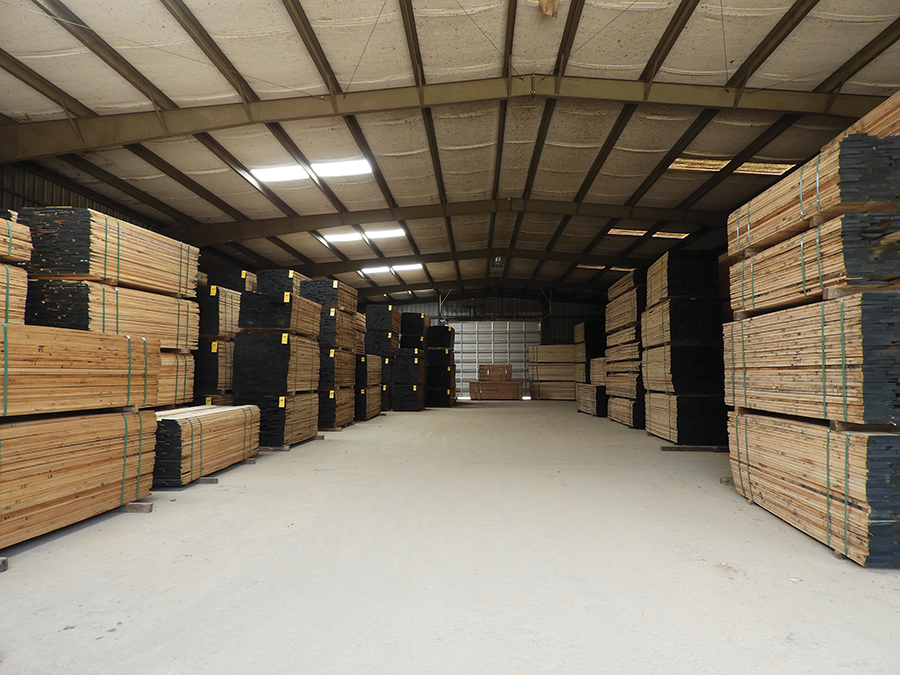
Clark manages sales along with Joseph Draper, who additionally handles a good portion of the logistics. They deal primarily with Poplar and Red and White Oak. “Those three make up the biggest percentage,” stated Clark, “with Hard Maple, Ash and Hickory as secondaries. The fillers are our Walnut, Cherry and Soft Maple in smaller portion. We also do a fair amount of mixed Hardwood that would go into the frame stock market.”
Clark Lumber Company markets upper grades, both domestically and internationally. For Poplar and Red Oak, they produce 4/4 through 8/4, and White Oak in 4/4, 5/4 and 6/4 thicknesses. In secondary species, they produce 4/4 lumber except for the occasional 5/4 in Hickory. “NHLA grade is a true random product,” noted Clark, “random width, random length, just like it comes out of the mill. Should a customer buy a load of FAS lumber, it’s all the FAS that came out of that log.”
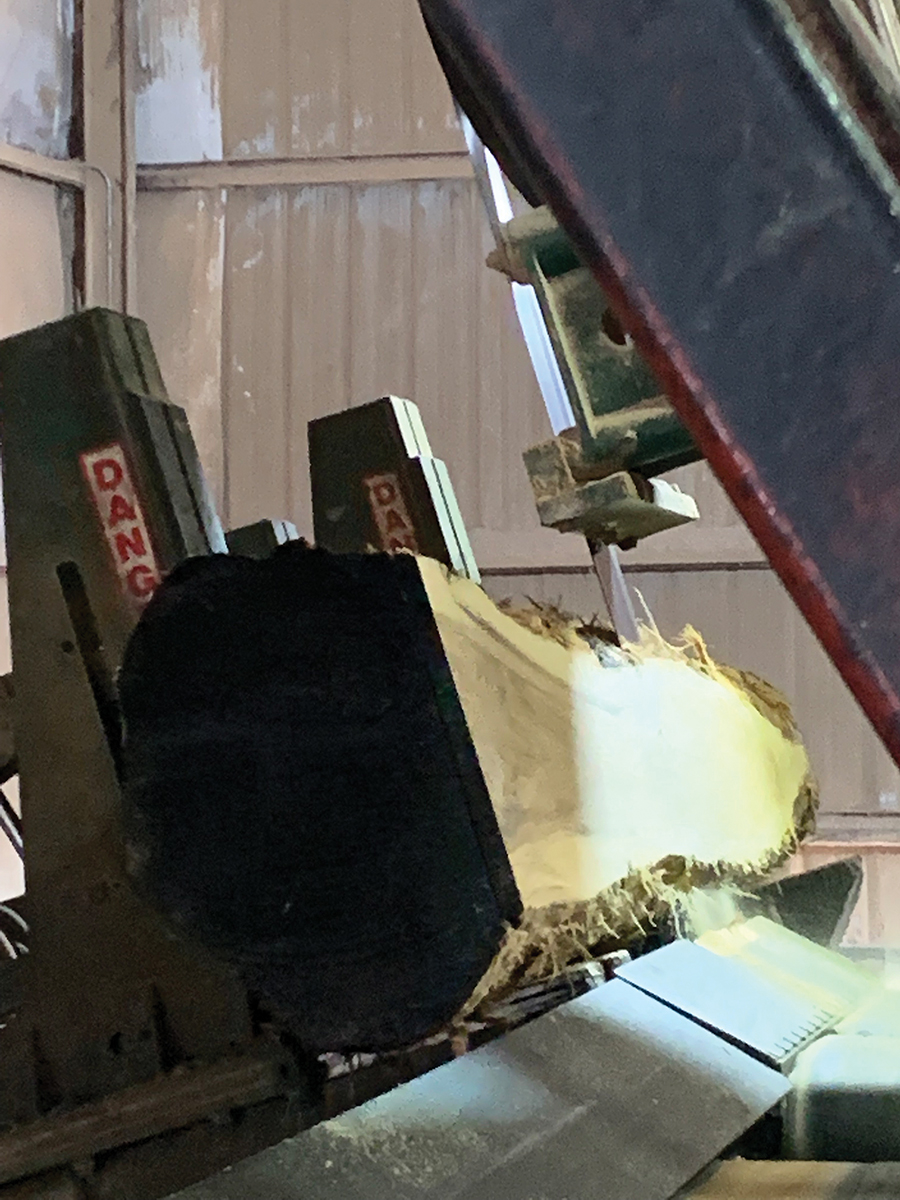
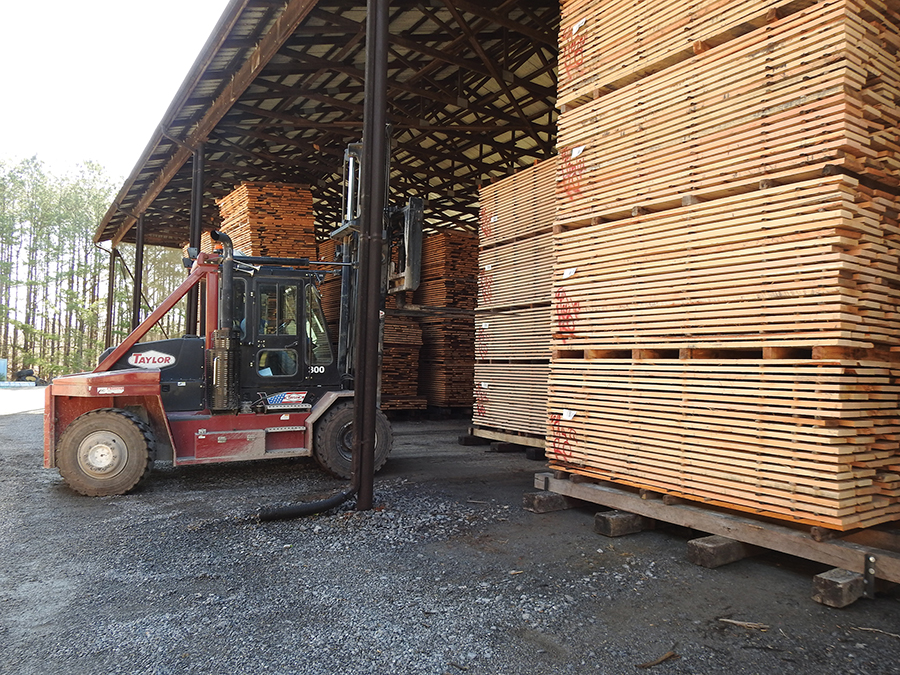
Clark continued, “We are heavy to 10-foot lengths in our dense Hardwoods due to the demand for cross ties at this time. Instead of producing a lot of eight-foot lumber, we elect to buy 10-foot logs and then trim them in a way that we can get the best tie. In Poplar, we run a little heavier to 12-foot with a good mix of longer lengths, as well.”
Additionally, the company owns a Walnut steamer and produces approximately 800,000 board feet of Walnut lumber. That production has declined slightly due to log exports. “We steam it 24 hours for every quarter of an inch,” he said, “so if it is 4/4, it is four days. We found that to be the best rule of thumb for optimal consistency and to get those colors blended.”
To maintain lumber integrity and appearance, grade lumber produced at the mills is end waxed with U-C Coatings wax after it comes across the stacker. Any lumber that will be on sticks is then dipped with Kop-Coat. Whitewoods are placed on Breeze Dried grooved sticks to ensure there is no sticker shadow. The grooved sticks are also used in the process of manufacturing Hickory, to keep it from having the enzymatic stain and increase air flow. “In the summertime, we put our whitewoods in front of the forced-air sheds to push air across it, so the air doesn’t become stagnant, until a kiln becomes available. We schedule the whitewood cuts the first four days of the week so we can go into the weekend with a darker wood—an Oak or Walnut where stain is not an issue.”
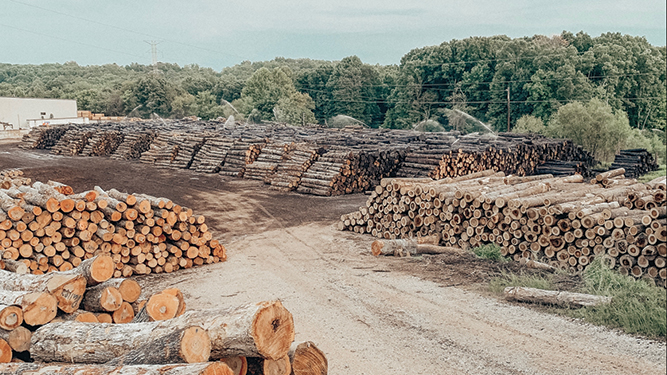
On the distribution end, the company’s customers remain evenly split between domestic and export markets, although it leaned heavier to exports (70/30) just five years ago. “Poplar and Maple have more of a domestic presence and end up in a distribution warehouse here in the states,” Clark explained. “The White Oak is a mixed bag—it goes domestic and export. Red Oak is heavier to export and the majority of the Hickory is going directly to end users in all parts of the world.”
The company’s expansive export market includes China, Vietnam, Indonesia, Malaysia, Thailand, Australia, the UK, Germany, Spain, Portugal, and occasionally Egypt. While they send some lumber into Mexico, Clark mentioned that he would like to increase business there.
Since Clark Lumber has 22 trucks, they are not dependent on a common carrier to move logs and many of the items are sold locally, so most of their trucks stay within a 150-mile radius. Common carriers are used for the long-distance loads. For exports, the company ships to Nashville, which is only 60 minutes from their sawmill facility.
Even with these added advantages, Clark noted that distribution remains a challenge. “We can load 25 containers a week and turn them into the rail at Nashville,” he said. “If we exceed that, we start hitting delays with truck and container availability. Nashville has become a major hub for both import and export freight and we are competing for space with several other companies and industries.”
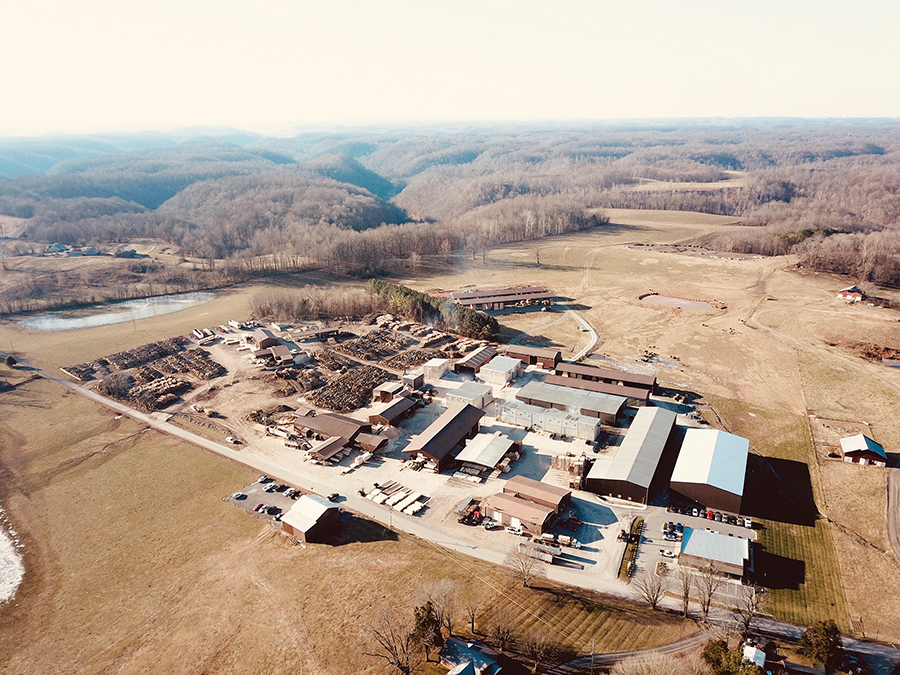
Clark reiterated that they keep around two million feet of lumber in their warehouses, ready for program orders or the occasional spot load. That capacity, combined with focus on maintaining the highest quality production, drying, storing and distribution standards, ensures their downstream customers get exactly what they want.
Today, meeting and exceeding customers’ expectations have driven the company’s success for 40 years. Clark represents the fifth generation of lumber industry expertise that runs in the Clark family blood. Both of his great-great grandfathers worked in the sawmill industry. Hugh D. Clark started Clark Lumber Company in 1982 with his son, Hugh Wayne.
In 1996, Clark Lumber Company purchased a facility in Lafayette, TN to increase production and in 2004, kilns were added in Red Boiling Springs. Currently, they operate three mills in Red Boiling Springs; two mills at the Lafayette site; and two additional mills for Clark Hardwoods, located in Erin, TN. Between Clark Lumber Company and Clark Hardwoods, they maintain a staff of about 140 people, including their own truck drivers.
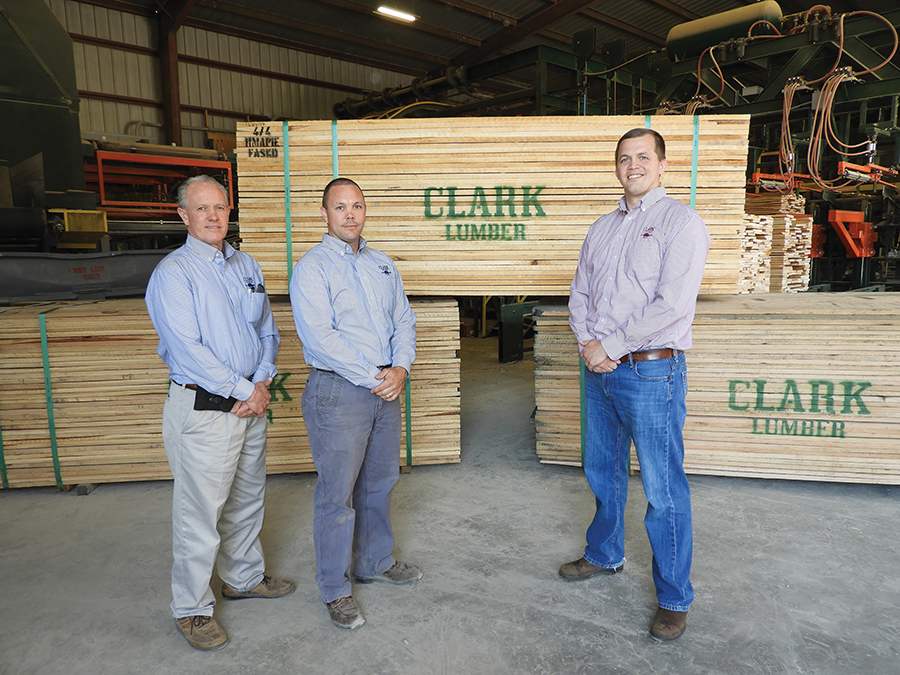
Clark Lumber Company is a member of the National Hardwood Lumber Association, American Hardwood Export Council, Tennessee Forestry Association, Kentucky Forest Industries Association and Indiana Hardwood Lumbermen’s Association.
For more information, visit www.clarklumbercompany.com.


